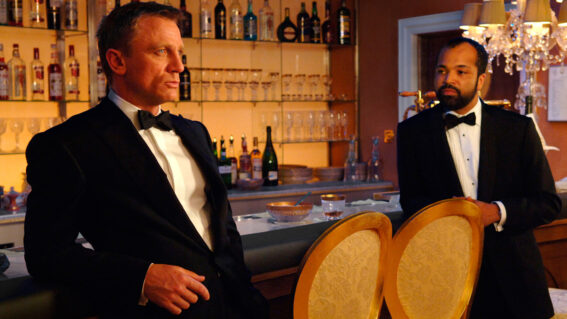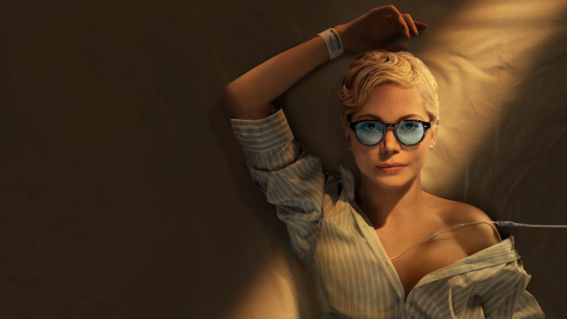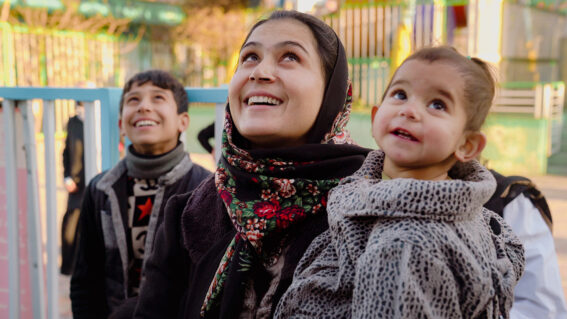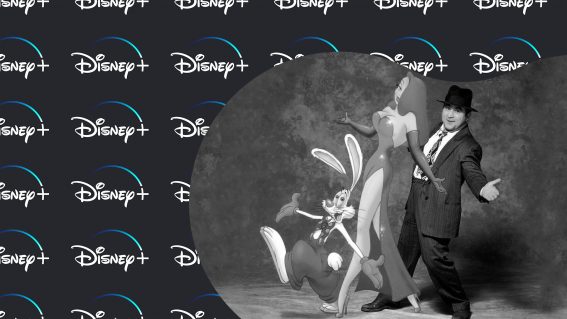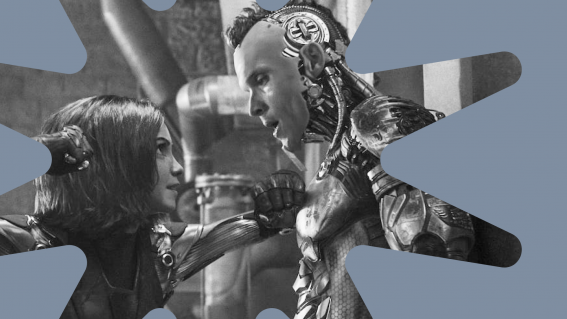The Bear’s second serving is lighter and sweeter, but still with plenty of bite
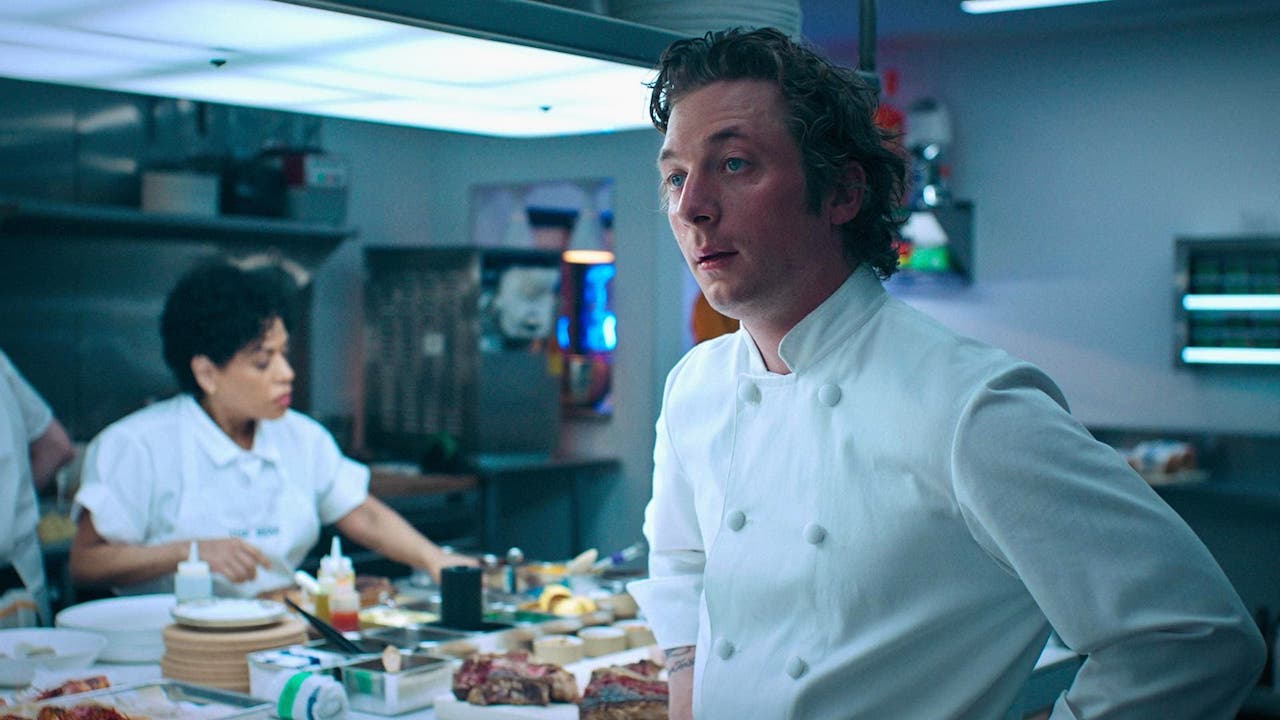
Carmy’s cookin’ up something big in the new episodes of critically-revered drama The Bear: Luke Buckmaster is happy to report that this second season is just as tasty and slightly less hectic.
The arrival of The Bear represented the best kind of event television: a show that seemed to come out of nowhere and was pumped up for the right reasons. Critics venerated it and audiences came to the party. Its attention was earned (not inherited, like Star Wars or MCU productions) in part due to a striking sense of place. The series’ very shape and form reacted to the hectic goings-on in the central location, the kitchen in a Chicago sandwich shop, where the staff really really need to bang out beef sangas, which isn’t as easy as it sounds. In fact it’s highly stressful—for them and us. The way this show moves and sweats, you lose a few kilos just watching.
The second season, again helmed by creator, co-writer and co-director Christopher Storer, doesn’t open with the same hectic rhythms, or even hectic rhythms at all. This feels almost like an act of subversion. This season retains the same location, geographically speaking, but not the same setting.
The plan spearheaded by ace chef Carmen Berzatto (Jeremy Allen White) is to remodel, rebuild and relaunch, turning the former homely eatery into a fine dining establishment. Somewhere his sous-chef and second-in-command Sydney (Ayo Edebiri) says might get a Michelin star. In an early scene, Carmen and Sydney plus Carmen’s sister Natalie (Abby Elliott) convince Jimmy (Oliver Platt), their uncle with gangsterish vibes, to bankroll their vision.
Whereas the original season had that throbbing pace, with every vein-popping second mattering, the second overlays a broader timeline: the team have 18 months to make the new restaurant profitable. Towards the end of the first episode (this review encompasses episodes one to four) one character comments that “six months is too long!” Another concurs: “we need to open this shit ASAP.” Then a montage arrives like in the first episode of the inaugural season, whipping the atmosphere into a tizzy and crowbarring in shots, High Noon style, of a clock on the wall, imparting an obvious message: THE CLOCK IS TICKING!
It would’ve been convenient for Storer and his co-writers (Joanna Calo, Karen Joseph Adcock, Catherine Schetina, Stacy Osei-Kuffour, Sofya Levitsky-Weitz, Alex Russell, Rene Gube and Kelly Galuska) to gorge on “end of an era” vibes. The old sanga shop has sentimental import and a tragic backstory: as viewers of the first season will recall, Carmen took over following his brother’s death by suicide. Instead the shop’s redevelopment is treated as an opportunity for rebirth—even if the characters would never use a word as rhapsodic as that. These people are hospitality workers…they talk straight.
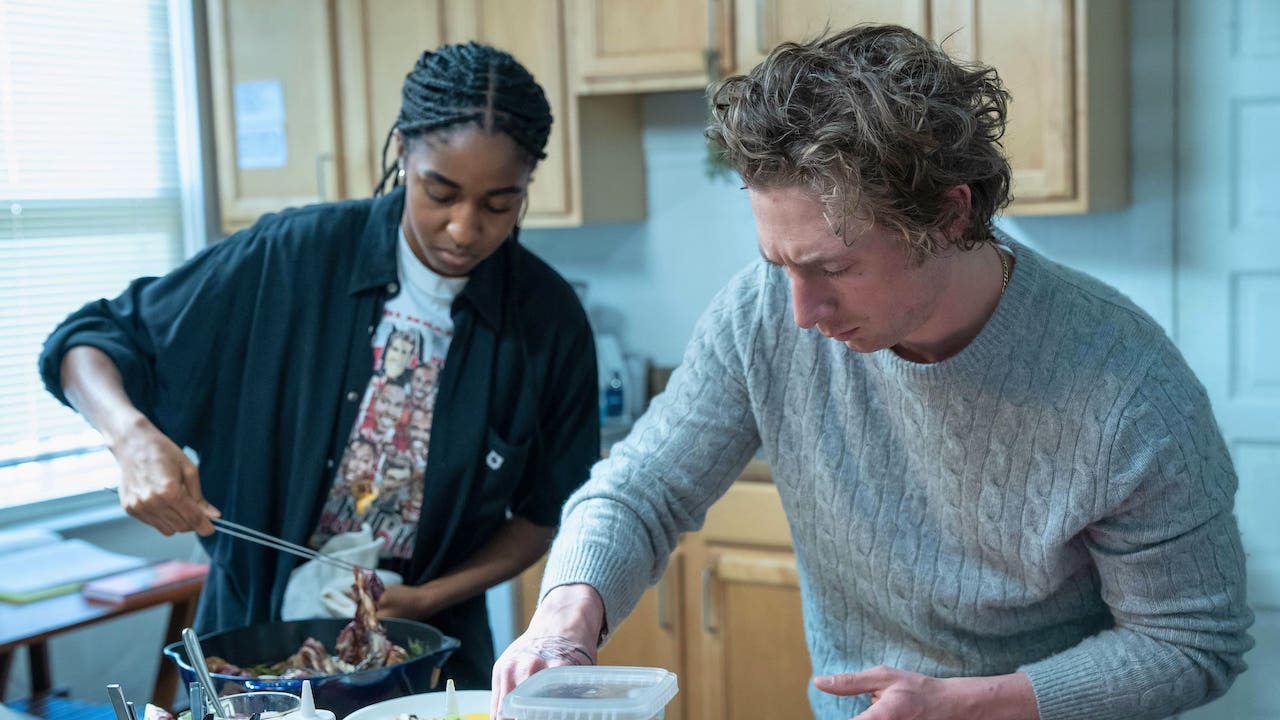
This season is more generously divided between the cast, and almost entirely (at least for the first four episodes) escapes the heat of the kitchen. Which I miss, but I’m assuming the fire will be ignited again. The Bear retains its ability to flip seamlessly from drama and poignancy to character-driven comedy. For instance when the handyman Neil (Matty Matheson) discovers mould in the building, Carmen’s entertainingly volatile cousin Richie (Ebon Moss-Bachrach) implores him to keep mum.
“I will grant you that it’s gained some traction in recent media cycles,” he says of mould, describing it as a “buzzword” that if reported will summon the presence of “the weirdos, the scientists, the abatement people.” This guy embraces the logic of anti-vaxxers and climate deniers: when faced with a moral problem, ignore the facts and blame the media.
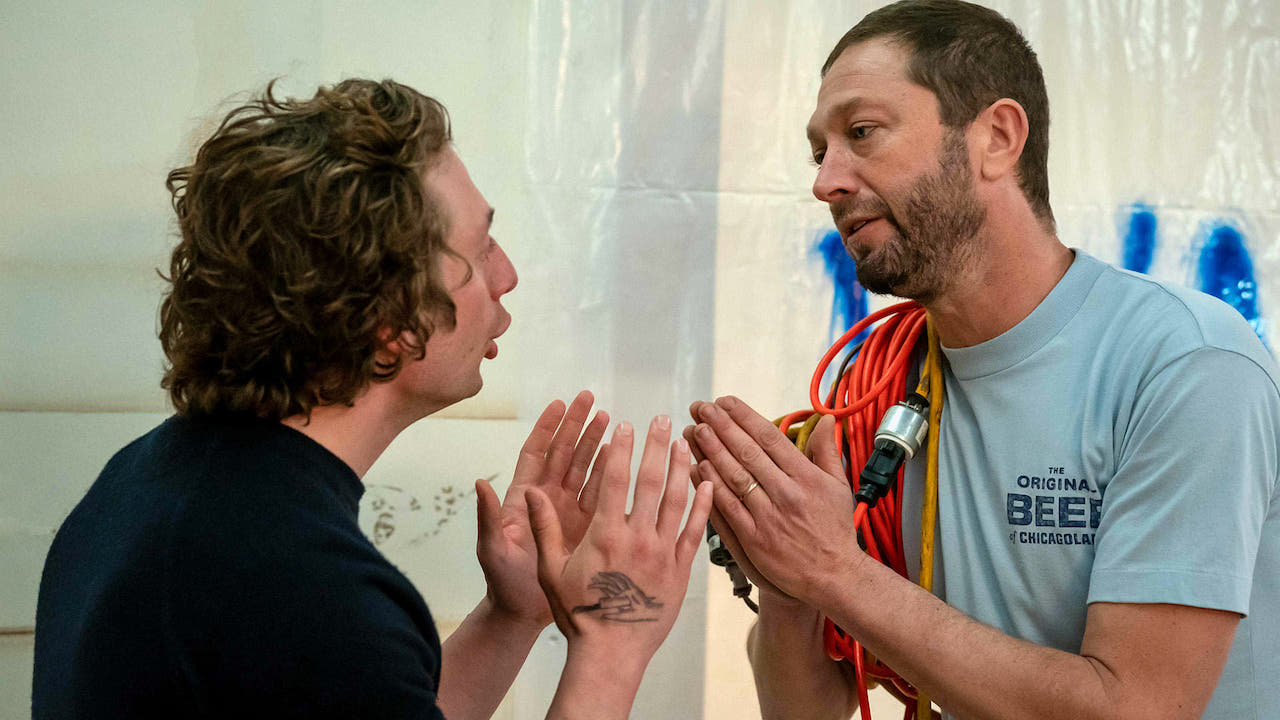
All the performances are sharp and all the characters carefully developed. My favourites are Jeremy Allen White as Carmy and Ayo Edebiri as Sydney. The former very effective deploys a “less is more” approach, hitting the same slightly sleepy beats scene after scene. You really like watching Carmy, but you probably don’t want to spend time with him. Edebiri on the other hand provides a kinder presence: stubborn and headstrong, but also warming.
The show’s plot and visuality exploits the same broad appeal as home renovation shows, which are also about rebirth, and also feature people who’d never use that word. Raccoons, termites, roaches: all must go. Old walls come down, new ones come up. Things slowly come to fruition. We appreciate this transformation the same way we appreciate watering a plant and watching it grow. The Bear‘s second season, even more so than the first, is about toiling away to create something; it’s about teamwork. It’s less frazzled, lighter in tone and sweeter in temperament.



